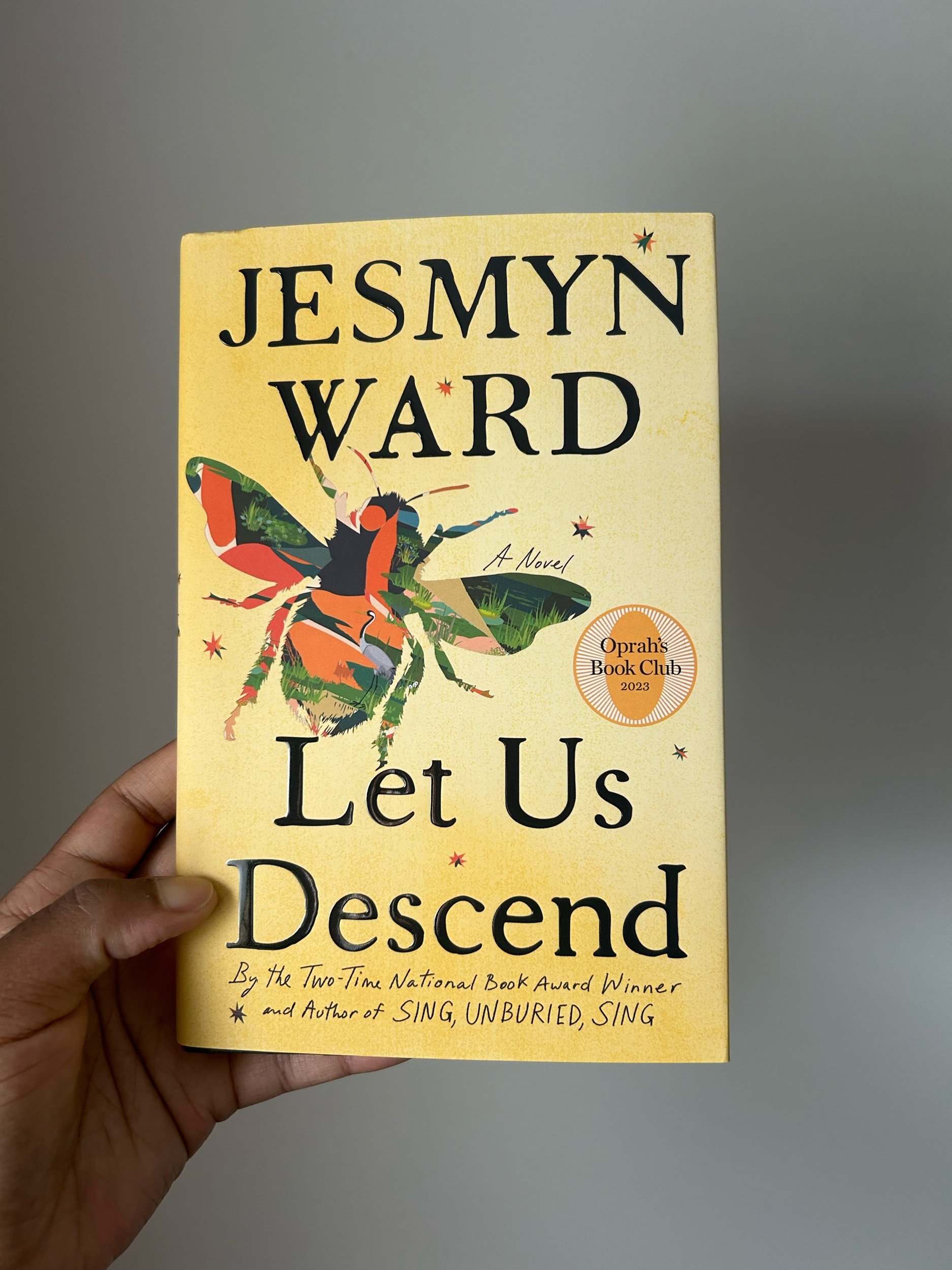Let Us Descend by Jesmyn Ward
Let Us Descend describes a journey from the rice fields of the Carolinas to the slave markets of New Orleans and into the fearsome heart of a Louisiana sugar plantation. A journey that is as beautifully rendered as it is heart wrenching, the novel is “[t]he literary equivalent of an open wound from which poetry pours” (NPR).
Annis, sold south by the white enslaver who fathered her, is the reader’s guide. As she struggles through the miles-long march, Annis turns inward, seeking comfort from memories of her mother and stories of her African warrior grandmother. Throughout, she opens herself to a world beyond this world, one teeming with spirits: of earth and water, of myth and history; spirits who nurture and give, and those who manipulate and take. While Annis leads readers through the descent, hers is ultimately a story of rebirth and reclamation.
From one of the most singularly brilliant and beloved writers of her generation, this “[s]earing and lyrical…raw, transcendent, and ultimately hopeful” (The Atlanta Journal-Constitution) novel inscribes Black American grief and joy into the very land—the rich but unforgiving forests, swamps, and rivers of the American South. Let Us Descend is Jesmyn Ward’s most magnificent novel yet.
Let Us Descend describes a journey from the rice fields of the Carolinas to the slave markets of New Orleans and into the fearsome heart of a Louisiana sugar plantation. A journey that is as beautifully rendered as it is heart wrenching, the novel is “[t]he literary equivalent of an open wound from which poetry pours” (NPR).
Annis, sold south by the white enslaver who fathered her, is the reader’s guide. As she struggles through the miles-long march, Annis turns inward, seeking comfort from memories of her mother and stories of her African warrior grandmother. Throughout, she opens herself to a world beyond this world, one teeming with spirits: of earth and water, of myth and history; spirits who nurture and give, and those who manipulate and take. While Annis leads readers through the descent, hers is ultimately a story of rebirth and reclamation.
From one of the most singularly brilliant and beloved writers of her generation, this “[s]earing and lyrical…raw, transcendent, and ultimately hopeful” (The Atlanta Journal-Constitution) novel inscribes Black American grief and joy into the very land—the rich but unforgiving forests, swamps, and rivers of the American South. Let Us Descend is Jesmyn Ward’s most magnificent novel yet.
Let Us Descend describes a journey from the rice fields of the Carolinas to the slave markets of New Orleans and into the fearsome heart of a Louisiana sugar plantation. A journey that is as beautifully rendered as it is heart wrenching, the novel is “[t]he literary equivalent of an open wound from which poetry pours” (NPR).
Annis, sold south by the white enslaver who fathered her, is the reader’s guide. As she struggles through the miles-long march, Annis turns inward, seeking comfort from memories of her mother and stories of her African warrior grandmother. Throughout, she opens herself to a world beyond this world, one teeming with spirits: of earth and water, of myth and history; spirits who nurture and give, and those who manipulate and take. While Annis leads readers through the descent, hers is ultimately a story of rebirth and reclamation.
From one of the most singularly brilliant and beloved writers of her generation, this “[s]earing and lyrical…raw, transcendent, and ultimately hopeful” (The Atlanta Journal-Constitution) novel inscribes Black American grief and joy into the very land—the rich but unforgiving forests, swamps, and rivers of the American South. Let Us Descend is Jesmyn Ward’s most magnificent novel yet.
